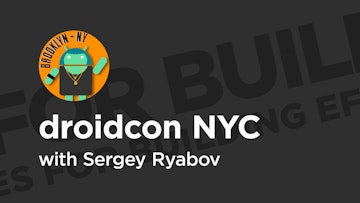
Good to know
Save this course
Activities
Career center
Android Engineer
UI Engineer
Software Engineer
Mobile Developer
Front-End Developer
Web Developer
Product Designer
Interaction Designer
User Experience Researcher
Technical Writer
Project Manager
Data Scientist
Business Analyst
Marketing Manager
Sales Manager
Reading list
Share
Similar courses
OpenCourser helps millions of learners each year. People visit us to learn workspace skills, ace their exams, and nurture their curiosity.
Our extensive catalog contains over 50,000 courses and twice as many books. Browse by search, by topic, or even by career interests. We'll match you to the right resources quickly.
Find this site helpful? Tell a friend about us.
We're supported by our community of learners. When you purchase or subscribe to courses and programs or purchase books, we may earn a commission from our partners.
Your purchases help us maintain our catalog and keep our servers humming without ads.
Thank you for supporting OpenCourser.


